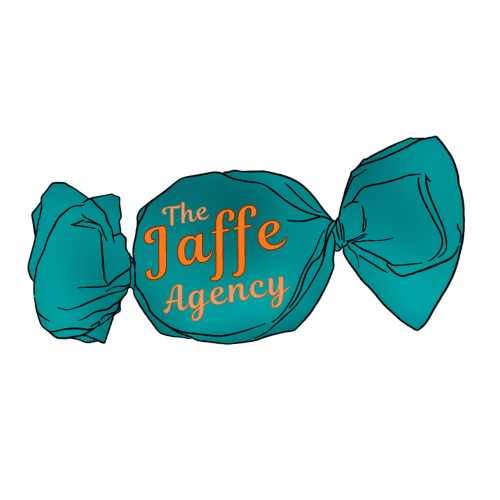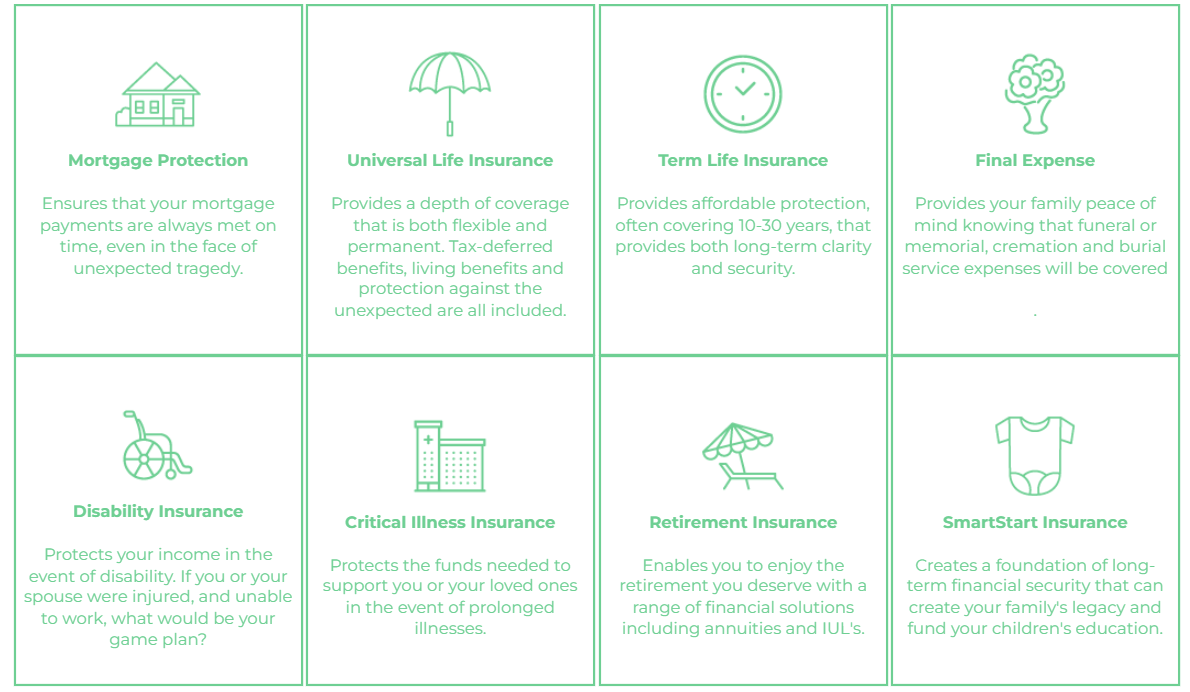
LIFE INSURANCE COMES IN MANY FORMS
The Three Basic TYPES of coverage are TERM, UNIVERSAL and WHOLE LIFE
these are fundamental explanations each type comes with its own unique variables to suit your needs
TERM
Term life insurance is a type of policy that provides coverage for a set period of time. If the policyholder dies during that time, a death benefit is paid out to the beneficiary. It's typically less expensive than other types of life insurance and can be easier to understand and purchase. Common riders, or additional policy features, include accidental death benefit, living benefits, waiver of premium, and child rider.
WHOLE
Whole life insurance is a policy that provides coverage for your entire life, as long as you pay the premiums. It includes a savings component, known as cash value, and has fixed premiums. It's typically more expensive than term life insurance. Common riders include accelerated death benefit, accidental death benefit, and long-term care rider.
UNIVERSAL
Universal life insurance is a policy that provides lifelong coverage and is flexible in terms of premiums and death benefits. It includes a savings component, and riders may include long-term care, accidental death, and disability waiver.

WANT MORE?
CONNECT WITH A LICENSED BROKER
TERM LIFE INSURANCE
Term life insurance is a type of life insurance policy that provides coverage for a specified period of time, typically ranging from one to thirty years. During this period, if the policyholder passes away, the insurance company pays out a death benefit to the beneficiary, which is typically a spouse, child, or other family member. One of the benefits of term life insurance is that it is generally less expensive than other types of life insurance, such as permanent life insurance. This is because it provides coverage for a limited period of time, rather than for the entire duration of your life. Another advantage of term life insurance is that it is typically easier to understand and purchase than other types of life insurance. You can choose the length of the term that best fits your needs and budget, and you pay a fixed premium throughout the term. However, it's important to remember that term life insurance only provides coverage for the specified term. If the policyholder outlives the term, the policy expires and there is no payout. Some policies may allow for renewal at the end of the term, but the premiums may increase. I hope that helps explain term life insurance to you. If you have any further questions, feel free to ask.

WHOLE LIFE INSURANCE
Whole life insurance is a type of life insurance policy that provides coverage for the entire duration of your life, as long as you continue to pay the premiums. It's different from term life insurance, which only provides coverage for a specified period of time. One of the benefits of whole life insurance is that it includes a savings component, known as cash value. This means that a portion of your premium payments goes toward building up a cash value within the policy, which can be borrowed against or used to pay premiums in the future. Another advantage of whole life insurance is that the premiums are typically fixed for the life of the policy. This means that you won't have to worry about your premium increasing as you age or if you develop health issues. However, whole life insurance tends to be more expensive than term life insurance due to its lifelong coverage and cash value component. It may also be more complex and require more attention to detail when purchasing. Common riders for whole life insurance policies include accelerated death benefit, accidental death benefit, and long-term care rider. I hope that gives you a good understanding of whole life insurance. Let me know if you have any other questions.

UNIVERSAL LIFE INSURANCE
Universal life insurance is another type of life insurance policy that provides coverage for the duration of your life. It's similar to whole life insurance in that it includes a savings component, but it's more flexible in terms of premiums and death benefits. With universal life insurance, you have the ability to adjust your premiums and death benefits over time, which can be useful if your financial situation changes. The savings component, known as the cash value, can also be used to pay premiums or taken out as a loan. However, universal life insurance can be more complex and require more attention to detail when purchasing. It may also be subject to interest rate fluctuations, which can affect the cash value. Common riders for universal life insurance policies include long-term care rider, accidental death benefit, and waiver of monthly deduction for disability. In summary, universal life insurance provides coverage for your entire life and is flexible in terms of premiums and death benefits. Common riders include long-term care rider, accidental death benefit, and waiver of monthly deduction for disability.

Talking to our life insurance brokers can be a reasonable next step if you're considering buying a life insurance policy because we can provide you with expert advice and guidance.
We can help you navigate the often complex world of life insurance and find a policy that fits your unique needs and budget. We can explain the differences between various types of policies, such as term life insurance, whole life insurance, and universal life insurance, and help you determine which one is best for you.
We can also help you understand the various riders that are available and which ones may be beneficial for you and your family. We can help you compare policies from different insurance companies and find the one that offers the best coverage at the most affordable price.
Overall, working with a life insurance broker can save you time and effort, as we can do the research and comparison shopping for you. We can also provide you with peace of mind, knowing that you have a policy that will provide financial protection for your loved ones in the event of your untimely death.

Privacy Policy | Terms & Conditions | Compliance
Copyright 2026 | The Jaffe agency
All Rights Reserved.